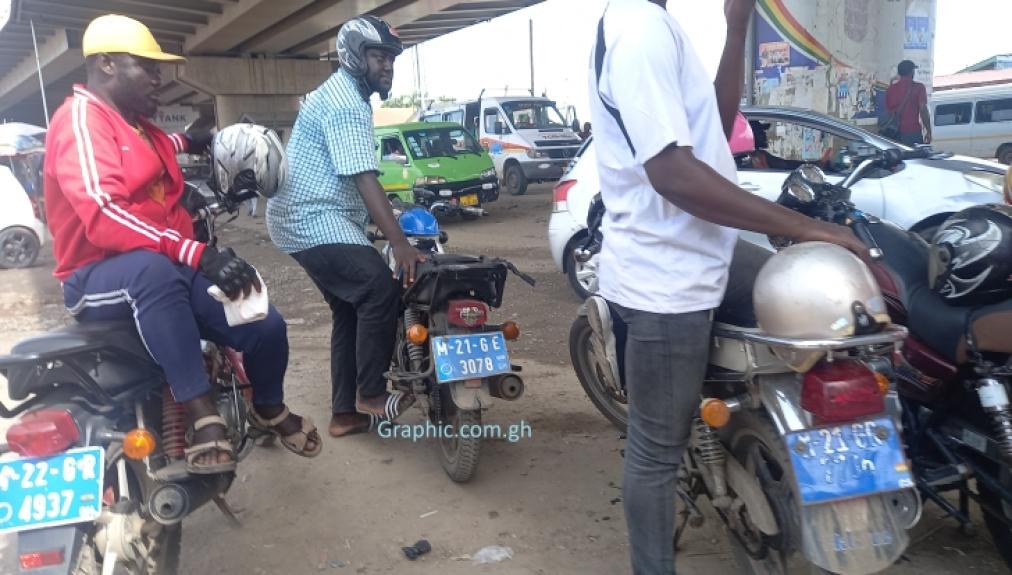


New Regulations for Okada Operators in Ghana
Persons willing to operate a commercial motorcycle or tricycle, popularly known as ‘okada’, can only do so if they belong to a recognised transport union or are employed by a licensed commercial motorcycle company.
This provision is part of a new Legislative Instrument (LI) being drafted to amend the existing Road Traffic Regulations, 2012 (LI 2180). The proposed LI also includes a minimum age of 25 years for riders.
Speaking at a national stakeholder consultation in Accra on Monday, April 7, 2025, Minister of Transport, Joseph Bukari Nikpe, announced the introduction of a new licensing regime. The goal is to enhance monitoring and ensure that okada and tricycle operators meet competency standards.
“Our utmost priority is the safety and welfare of the riders and passengers,”
— Joseph Bukari Nikpe, Minister of Transport
He also mentioned that the regulations would include:
Mandatory helmet use
Periodic vehicle inspections
Compulsory rider training
This event marked the first of a nationwide consultation to review LI 2180 and guide the formal operationalisation of okada services.
The consultative meeting brought together:
Ghana Police Service (MTTD)
Ghana Private Road Transport Union (GPRTU)
Okada riders’ associations
Government departments and civil society organizations
Transport operators and industry experts
Only licensed operators or union members may run commercial okada/tricycle services.
Offenders operating outside these provisions may face:
A fine of 100 penalty units
Imprisonment
Or both
Motorcycles and tricycles have become essential in Ghana’s transport system, especially:
For last-mile travel
In remote or hard-to-reach locations
In urban centres in northern Ghana, where they’ve replaced traditional vehicles
However, this growth has brought challenges:
Increasing road crashes and fatalities
Poor safety compliance
Disregard for traffic laws
President John Dramani Mahama, during the 2016 elections, pledged effective regulation of okada operations.
In response, a 13-member committee was formed last month comprising:
Ministry of Transport (Chair)
Office of the Attorney General and Ministry of Justice
Ministry of Youth Development and Empowerment
Ministry of Local Government, Chieftaincy & Religious Affairs
DVLA
National Road Safety Authority
This committee developed a draft regulatory framework now under review.
According to Mr. Nikpe, the consultation aims to:
Gather grassroots input
Refine the proposed framework
Develop a robust regulation for Parliamentary consideration
“Through this dialogue, we hope to develop a comprehensive and robust regulatory framework that will stand the test of time.”
Must be registered under the Companies Act, 2019 (Act 992) as:
A limited liability company, partnership, cooperative, or union
Must:
Operate in at least 8 administrative regions
Have minimum 50 vehicles per region or as directed by the authority
Adopt a standard uniform (dress code) approved by the authority
Comply with DVLA and district regulations
Rider’s License valid for 2 years
Union License renewed annually with prescribed fees and conditions
Operators must comply with an approved Code of Conduct
Unions must:
Organise annual refresher training
Enrol riders in an electronic database
District assemblies are empowered to:
Issue operational permits to unions upon meeting specified conditions
Designate official terminals and stands for okada/tricycle services
Investigate and record violations of the Code of Conduct
To qualify, riders must:
Be at least 25 years old
Hold a valid commercial rider’s licence from the DVLA
Possess a valid Ghana Card
Pass:
Proficiency test
Oral and theory test
Eye test
They must also:
Complete training based on a government-approved syllabus/manual
Use a yellow license plate with black lettering
Wear a certified helmet with unique number
Provide a helmet for pillion riders
Adhere to all road traffic laws and speed limits